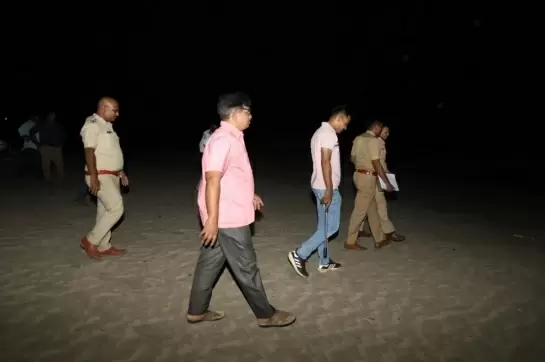South Asia's recovery continues amid uncertainties due to Covid: World Bank
Dhaka
07-October-2021
.webp)
PHOTO: IANS
South Asia's recovery continues as global demand rebounded and targeted containment measures helped minimize the economic impacts of the recent waves of Covid-19, the World Bank revealed in its twice-yearly regional update on Thursday.
The latest South Asia Economic Focus titled "Shifting Gears: Digitization and Services-Led Development" projects the region to grow by 7.1 per cent in 2021 and 2022.
While the year-on-year growth remains strong in the region, albeit from a very low base in 2020, the recovery has been uneven across countries and sectors.
South Asia's average annual growth is forecast to be 3.4 per cent over 2020-23, which is 3 percentage points less than it was in the four years preceding the pandemic.
India's economy, South Asia's largest, is expected to grow by 8.3 per cent in the fiscal year 2021-22, aided by an increase in public investment and incentives to boost manufacturing.
In Bangladesh, continued recovery in exports and consumption will help growth rates pick up to 6.4 per cent in fiscal year 2021-22.
Watch This TWL Video
In Maldives, GDP is projected to grow by 22.3 per cent in 2021, due to the tourism recovery.
"The pandemic has had profound impacts on South Asia's economy. Going forward, much will depend on the speed of vaccination, the possible emergence of new Covid-19 variants, as well as any major slowdown in the momentum of global growth," said Hartwig Schafer, World Bank Vice President for the South Asia Region.
"While short-term recovery is important, policymakers should also seize the opportunity to address deep-rooted challenges and pursue a development path that is green, resilient and inclusive."
Covid-19 has left long-term scars on the region's economy, the impacts of which can last well into the recovery.
Many countries experienced lower investment flows, disruptions in supply chains, and setbacks to human capital accumulation, as well as substantial increases in debt levels.
The pandemic is estimated to have caused 48 to 59 million people to become or remain poor in 2021 in South Asia.
As countries build back better, they have a chance to rethink their long-term development models. With the emergence of new digital technologies, South Asia has an opportunity to shift gears from a traditional manufacturing-led growth model and capitalize on the potential of its services sector.
The role of services in the region's economy has been increasing amid rapid technological change and the accelerated structural transformation of global economic activity in response to the pandemic.
The adoption of digital technologies makes services more tradable, enables services to increase the productivity of other sectors including manufacturing and creates new markets. Some South Asian countries are increasingly providing business and professional services that add value to manufacturing and play a key role in global value chains.
"Countries in South Asia have a strong comparative advantage in exporting services, particularly business processes and tourism, whereas they have struggled to break into manufacturing export markets," said Hans Timmer, World Bank Chief Economist for the South Asia Region.
"To realise the potential of the services-led development, the region needs to rethink regulations and establish new institutions to support innovation and competitiveness - IANS
More Headlines
Rupee Symbol Debate Heats Up as Tamil Nadu Opts for ‘ரூ’
AIADMK Walks Out, BJP Boycotts Tamil Nadu Budget Session
AI Cybersecurity Startup Neural Defend Raises $600K in Pre-Seed Round
Chennai Doctor and Family Found Dead Amid ₹5 Crore Business Loss
Karnataka Withdraws CID Probe in Ranya Rao Gold Smuggling Case
Rupee Symbol Debate Heats Up as Tamil Nadu Opts for ‘ரூ’
AIADMK Walks Out, BJP Boycotts Tamil Nadu Budget Session
AI Cybersecurity Startup Neural Defend Raises $600K in Pre-Seed Round
Chennai Doctor and Family Found Dead Amid ₹5 Crore Business Loss
Karnataka Withdraws CID Probe in Ranya Rao Gold Smuggling Case










